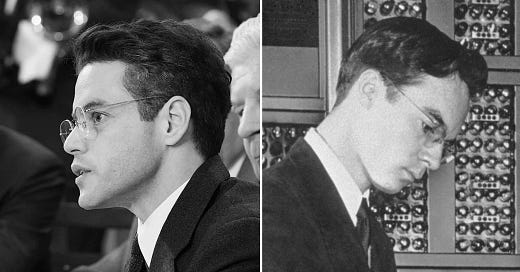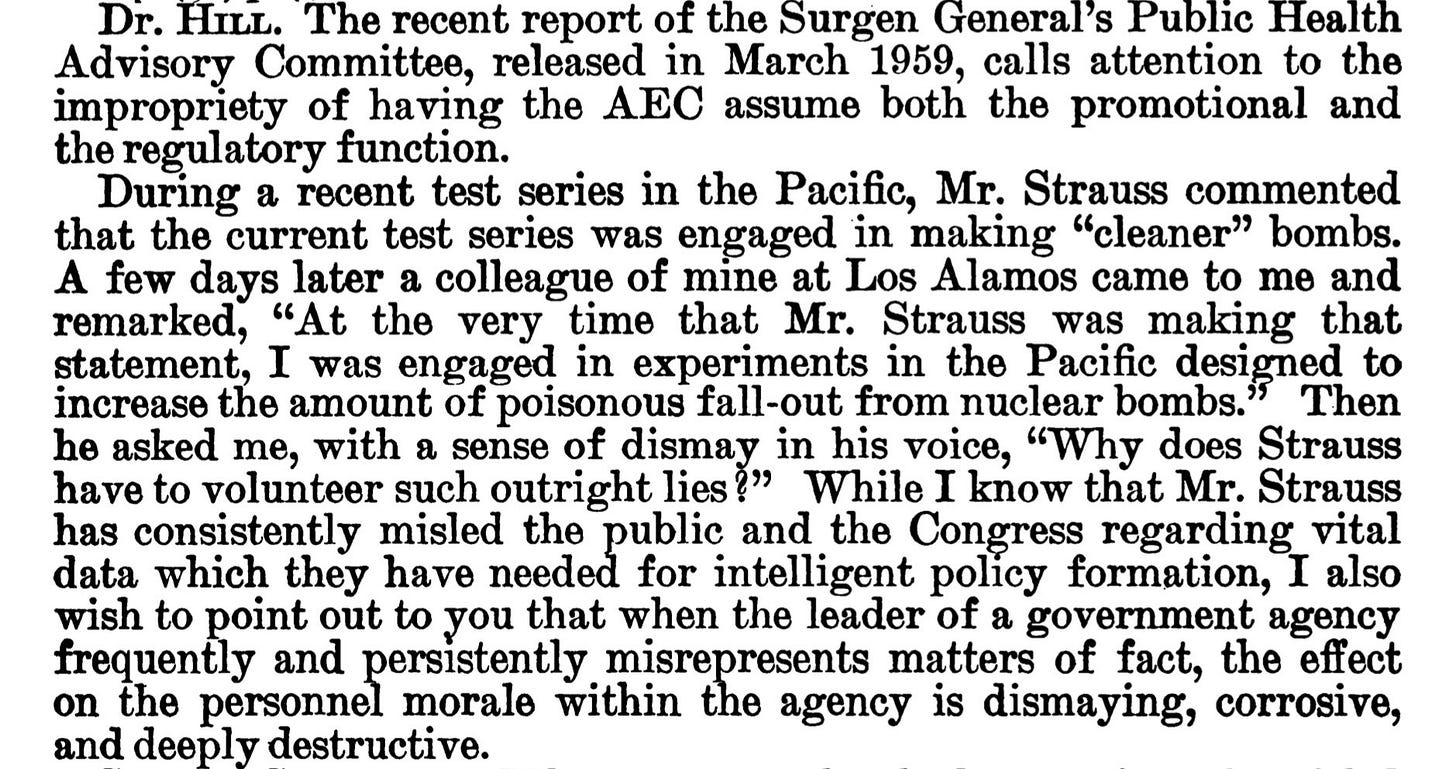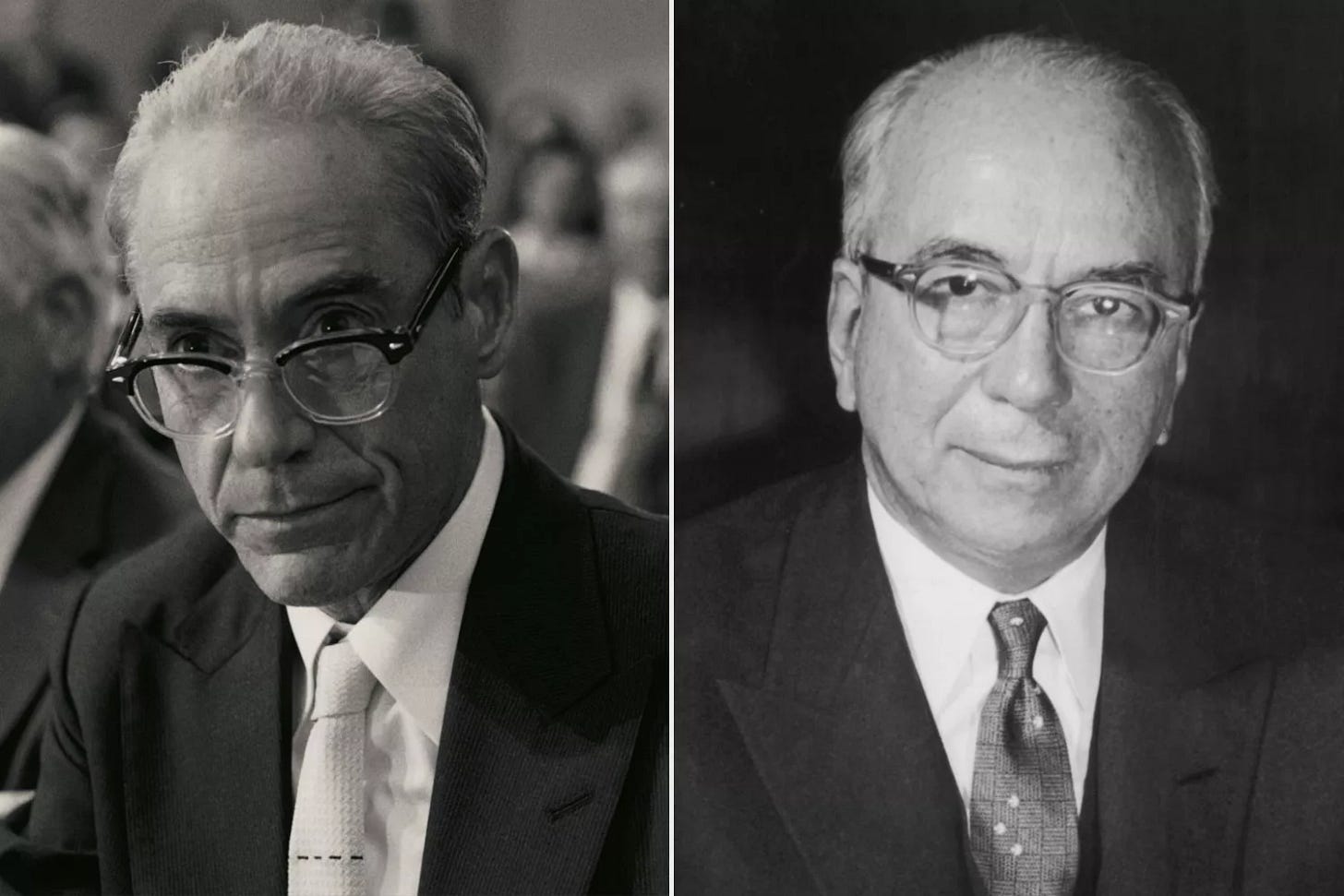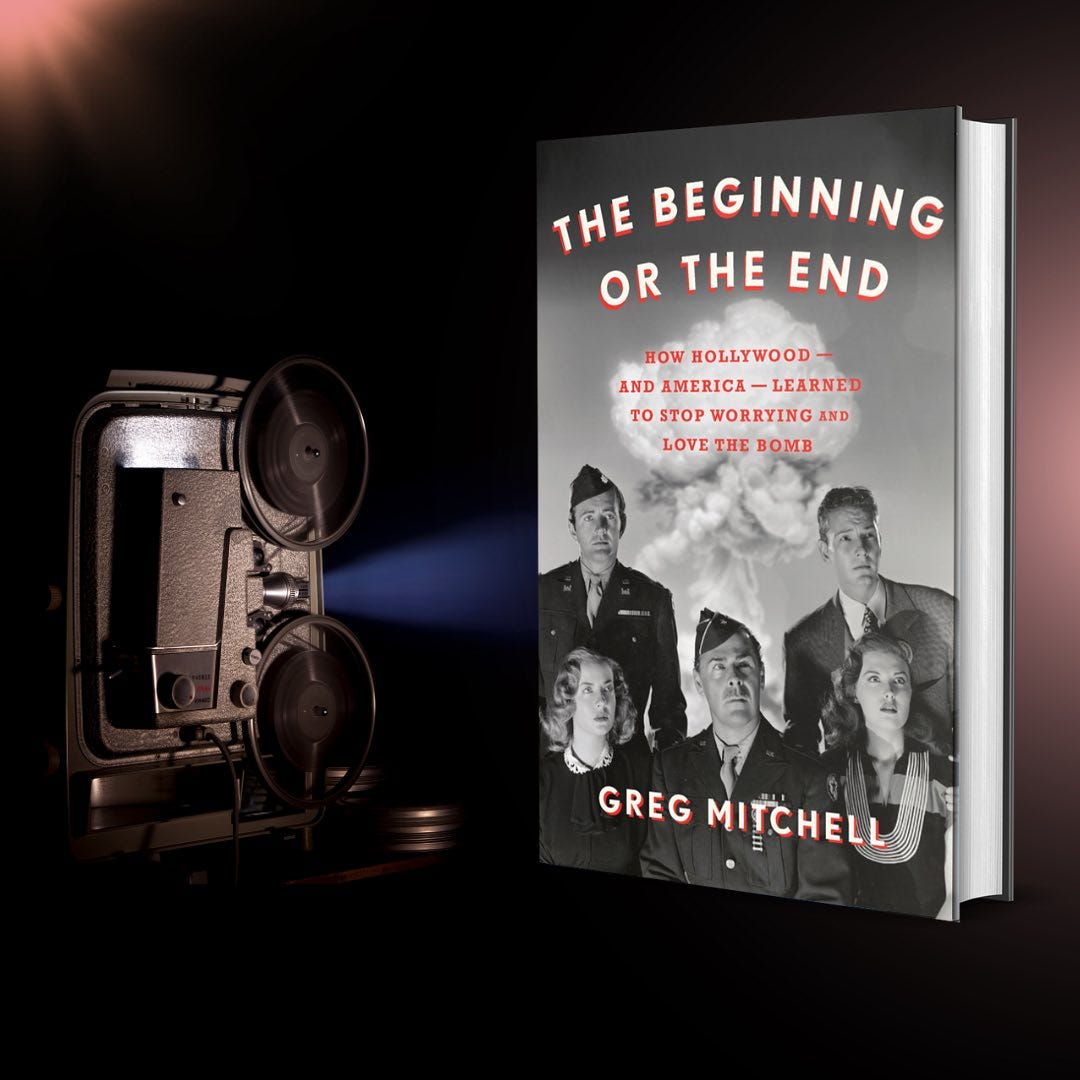Greg Mitchell is the author of a dozen books, including “Hiroshima in America,” “Atomic Cover-up,” and the recent award-winning “The Beginning or the End: How Hollywood—and America—Learned to Stop Worrying and Love the Bomb.” He has directed three documentary films since 2021, which have aired over PBS (and “Atomic Cover-up” coming this fall). He has written widely about the atomic bombings, and their aftermath, for over forty years.
Today we present, for the first time, a guest contribution from someone I’ve known, if from a distance, for quite some time. Gene Dannen posted what follows as a Twitter (excuse me, an “X”) thread yesterday and I was so intrigued I asked him if I could use it, slightly adapted, here. Gene, who lives in Oregon, has researched and written about the life of Leo Szilard for many years, along with the decision to use the bombs in 1945. Now read this. Then subscribe if you have not, it’s still free!
By Gene Dannen
Fact-checking the Oppenheimer Film:
Lewis Strauss didn’t lose his confirmation hearings because of his persecution of Robert Oppenheimer, as the movie portrays it. I have Nolan’s screenplay, and a PDF of the full transcript of the hearings.
Strauss’ hearings are mentioned in a single paragraph in the book American Prometheus, on which the movie is based. They are a major, repeating central theme throughout the movie, as it shifts back and forth in time. It would be hard to exaggerate how much of the screenplay, and the movie, is taken up by the Strauss hearings.
As Nolan tells it, the testimony of one scientist leads to Strauss’ downfall and Oppenheimer’s vindication.
In the movie, Strauss is doomed by the testimony of David L. Hill, who devastatingly lays out Strauss’ unethical persecution of Oppenheimer. Hill becomes a modern-day David who single-handedly slays Strauss’ Goliath.
Hill’s testimony in the movie is based on the transcript, but edited and arranged in a way to make it appear that he focused on Oppenheimer. He didn’t, and his testimony wasn’t the key factor in the hearings as Nolan portrays it.
He was a theoretical physicist on leave from Los Alamos, and former chairman of the Federation of American Scientists. Hill really did testify — courageously and impressively — against the powerful Strauss.
Strauss was unfit, Hill said, for many reasons — ONLY ONE of which was his treatment of Oppenheimer.
Among the reasons were:
his opposition to shipping isotopes abroad
Keeping radioactive fallout data secret
withholding seismic monitoring data to prevent an underground testing treaty
Making false claims about efforts to develop a “clean bomb “
David R. Inglis, a theoretical physicist at Argonne National Laboratory and chairman of the Federation of American Scientists, also testified. The Federation council had voted overwhelmingly to oppose the nomination. Inglis emphasized that Strauss had unilaterally opposed arms control and committed the country to ever-increasing bomb building and a nuclear arms race, thereby actually endangering America’s security.
Senators supporting Strauss attacked Hill and Inglis, accusing them of communist sympathies. Their tactics were reminiscent of the McCarthy era, and those used in Oppenheimer’s own hearing.
A much more prominent witness was Senator Clinton Anderson. As Chairman of the Joint Committee on Atomic Energy, he had long been troubled by Strauss’ conduct. He urged investigation of Strauss’ entire record.
The totality of Strauss’ past actions brought him down. He also brought himself down as he attempted to justify himself — by his false statements and evasions, his arrogance and self-righteousness. Strauss’ role in stripping Oppenheimer of his security clearance was only one factor among many.
The behind-the-scenes dialogue between Strauss and his aide appears to be solely the product of Nolan’s imagination.
Bottom line:
Nolan’s version of the Strauss hearings can’t be regarded as factual. His emphasis on them is also completely out of proportion to their minor significance in Oppenheimer’s life.
Just published: an expanded edition of my book Atomic Cover-up, now with several thousand words of mine re: Oppenheimer. And it’s on sale as an ebook for just $3.99 (vs. $11.95 for the paperback). Also learned this month my film of the same name coming to PBS starting in November.








Re "Their tactics were reminiscent of the McCarthy era" – the Strauss hearings occurred in 1959, and "McCarthyism" is generally considered to have run for the decade 1950-1959, even if McCarthy himself started in 1950 but dwindled after the Army-McCarthy hearings of 1954 – yes?